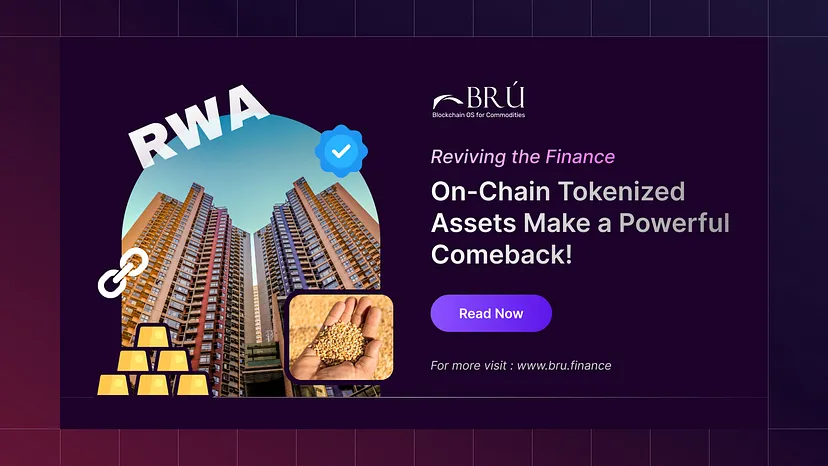
Reviving the Finance: On-Chain Tokenized Assets Make a Powerful Comeback!
Published On : October 03, 2024
The market value of on-chain real-world assets (RWAs), excluding stablecoins, continues to rise, representing continued investor interest in blockchain-based tokenization of traditional assets.
Currently, total RWAs are worth more than a record $12 billion. That amount excludes the $175 billion stablecoin market. Tokenization of RWAs like real estate, government bonds, stocks, and intangible assets like carbon credits makes traditionally illiquid markets easier to trade, allowing investors to purchase assets in fractions while facilitating clear records and streamlining the settlement process.
For over a year, tokenization has been touted as a trillion-dollar opportunity, accelerating traditional finance’s transition to blockchain rails. Bigwigs from Wall Street, like BlackRock (BLK) and Fidelity, have successfully forayed into RWAs
Tokenized treasury funds, digital representations of the U.S. Treasury notes, have surpassed $2.2 billion in market value, with BlackRock’s BUILD boasting nearly $520 million. With a market cap of $434 million, Franklin Templeton’s FBOXX is the second-largest tokenized Treasury product.
Elevated interest rates in the U.S. have catalyzed the rapid growth and leadership of the tokenized Treasuries market. This growth has likely been impacted by U.S. interest rates being at a 23-year high, with the federal funds target rate having been held steady at 5.25%-5.5% since July 2023.
This has made the US government-backed yield of Treasuries an attractive investment vehicle for many investors. The on-chain credit market is worth $9 billion or just 0.4% of the traditional private credit market sized at $2.1 trillion in 2023.
The major hurdle for RWA tokenization is the uncertain legal landscape. Converting assets like real estate or gold into tokens could classify them as securities, bringing regulatory challenges that dampen the benefits of utility tokens. There’s also the issue of verifying the authenticity of the assets backing these tokens. In a decentralized, trustless crypto world, users are naturally skeptical, making it harder to build trust in asset-backed tokens.
Yet, with sufficient government backing, especially in democratically legitimate jurisdictions, these challenges can be overcome. As crypto and finance become more intertwined, investors may feel more comfortable with government-backed tokenized assets.
But there’s a paradox at play. RWAs tend to be stable, making them less attractive to crypto traders who thrive on volatility. Low volatility leads to reduced trading activity and less liquidity, which in turn discourages traders and market makers. Without this self-reinforcing cycle of liquidity, the economic incentive to issue RWA tokens weakens.
While challenges associated with asset tokenization are non-trivial, they’re solvable with the right strategies and advancement in both technology and regulation associated with digital assets. The ongoing integration of traditional finance and digital assets, one example of which we see in the recent momentum on establishment of ETFs devoted to crypto assets like Bitcoin, suggests the appetite to solve many of these problems exists and is robust.
Overall, the key to overcoming these challenges is collaboration between blockchain technology experts, traditional finance leaders, and regulators, to ensure that asset tokenization can move forward productively and safely. Education of potential investors and other market participants on the benefits and challenges of asset tokenization is also essential. Ultimately though, if all stakeholders can agree that the potential benefits of asset tokenization outweigh these challenges, we’re likely to see progress on solving them.
For more updates and latest news about Brú Finance, please join our Twitter Channel, Discord server, LinkedIn, Telegram at
Please join our Discord events and Twitter AMAs to connect directly with our founders and ask your queries.
Discord: https://discord.gg/8C9SZXDy2r
Telegram Channel : https://t.me/bruofficial
Twitter : https://twitter.com/bru_finance
LinkedIn : https://www.linkedin.com/company/bru-finance/
Facebook :https://www.facebook.com/brufinance/
Instagram :https://www.instagram.com/brufinance/?igshid=YmMyMTA2M2Y%3D

 1.png)